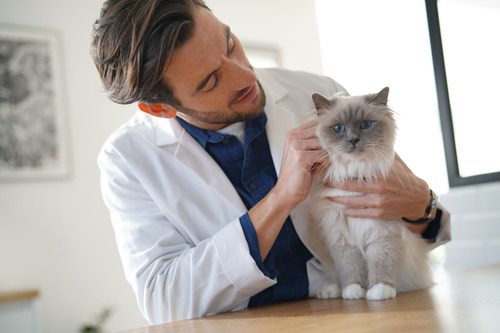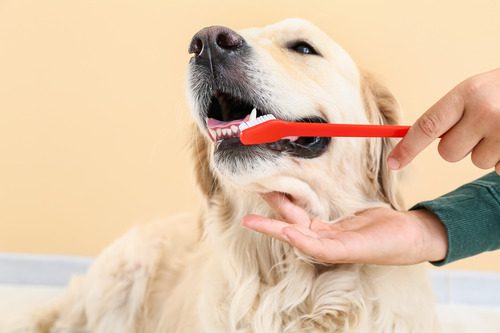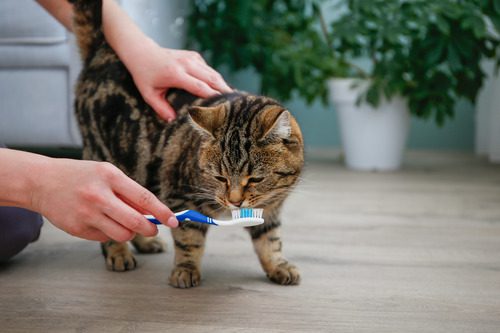When to Call An Emergency Vet in Alameda, CA
When should you call an emergency veterinarian? As a pet owner, it can be difficult to know when your dog or cat is having a true medical emergency, but as a rule, it’s better to be safe than sorry. If you’re worried, even if it’s the middle of the night, it’s always best to contact your nearest emergency vet. You can describe your pet’s signs and symptoms, and the veterinary staff in Alameda, CA will be able to offer you recommendations and whether or not you should bring your pet in.
Below are listed a few signs and symptoms that indicate that your pet is having a medical emergency. Without quick treatment, these situations can be very serious and potentially fatal. While this list doesn’t include every emergency condition, it can give you a place to start. However, when in doubt, call your veterinarian or emergency vet in Alameda, CA, and keep in mind that the sooner a problem is treated, the less expensive it will be in the long run.

Difficulty breathing
If your pet has noisy breathing, if you notice abdominal breathing, or if your pet is stretching their head and neck out trying to get a breath, or if your cat is open-mouth breathing, get to an ER as soon as possible. These signs may indicate respiratory distress and can lead to impending cardiac arrest.
Constant panting
If your dog or cat is panting constantly, this may also indicate a respiratory emergency.
If your pet collapses
If your pet can’t get up and is very weak, this can indicate an emergency.
If your pet is acting very tired and lethargic
This is not normal and may warrant a visit to the ER.
Constant coughing
If your pet is coughing, and can’t rest because of it, call the ER. Also, if your pet is coughing up pink, foamy liquid or blood, call the ER right away.
A distended or bloated abdomen
If your pet, especially dogs, appear to have a distended abdomen, call the ER right away. This could indicate a GDV (Gastric Dilatation Volvulus) or fluid in the abdomen.
Trying to vomit or non-productive retching
If your dog is trying to vomit and appears to have a distended abdomen, this could also indicate a GDV, where the stomach flips over on itself. This is a medical emergency and can be fatal if not treated immediately.
Anxiety, restlessness, can’t get comfortable
This may indicate a pain response or an underlying medical condition.
High heart rate
The normal heart rate for small dogs is 100-140 beats per minute and for larger dogs 60-100 beats per minute. For cats, the normal heart rate ranges between 140-220 beats per minute. If your pet is experiencing a high rate (> 160 BPM), this indicates an emergency, and may a result of cardiac issues. If you want to take your pet’s heart rate, place your index and middle finger along the femoral vein on the inside of your pet’s lower leg/thigh, just below the groin area. Count the beats for 15 seconds and then multiply by four.
High respiratory rate
If your pet’s respiratory rate is > 60 breaths per minute at home while resting, this may indicate a respiratory emergency.
Pale or abnormal gum color
Pale gums, purple gums, or bright red gums are abnormal.
If your pet is in pain
If your pet cries out in pain when moving, or cannot get comfortable, this warrants an ER visit.
Jaundiced eyes or gums
Jaundice is a condition where excess bilirubin, formed when hemoglobin (the part of red blood cells that carries oxygen) is broken down. If your pet has jaundice, this may be an indication of hepatitis, gallstones, and tumors.
Obvious wounds, bleeding, swelling, or broken bones
These may be a result of trauma and injury and should be treated as soon as possible.
Unable to move or walk or dragging of the back legs
These symptoms constitute a medical emergency. If you have a cat and it cannot move its back legs call the ER immediately. This may signal a saddle thrombus, which is a blood clot that lodges at the base of the aorta. If not treated, this condition can be fatal.
Bite wounds
If your pet has suffered bite wounds or was involved in a fight with another animal, he will need immediate medical attention, and possibly surgery.
If your pet is experiencing seizures
If your pet has a seizure that lasts more than 2-3 minutes or has more than 2-3 seizures in 24 hours, this is indeed a medical emergency.
Poisoning or toxin ingestion
If you suspect that your pet has ingested a poison or a toxin, call your emergency vet immediately. The ingestion of poisons and toxins can be potentially fatal if not treated as soon as possible.
Chronic vomiting
This may indicate ingestion of a foreign body or a toxin.
Abnormal rectal or vaginal discharge
If you notice an abnormal discharge that is red, pink, or odiferous, this may indicate an underlying condition or infection.
High temperature
If your pet feels warmer than usual, or if their temperature is over 103, contact the ER immediately.
Low temperature
If your pet’s temperature is < 99, this is abnormal, and you should contact the ER as soon as possible.
Straining to urinate
If your pet is trying to urinate, especially if you have a male cat, call your emergency vet immediately in Alameda, CA. Male cats can present with a condition where the urethra is blocked with crystals, making it difficult for your cat to urinate. This is an emergency and can be fatal without immediate treatment. If your dog is unable to urinate, this also constitutes an emergency and requires immediate attention to prevent bladder rupture.
Straining to defecate
This may indicate a blockage and may require immediate attention.
You know your pet best, and if anything at all worries you, it’s best to contact the local emergency vet in Alameda, CA. ER veterinary staff can help guide you and offer “phone triage” to get a better idea of your pet’s signs and symptoms. If you think that your pet has been poisoned, or has ingested a toxin, you can always call the non-profit ASPCA Animal Poison Control Center and they can provide life-saving advice and let you know if you should take your pet to the ER or not. (There is a fee for the call, but this information can be of great help to the emergency vet).
If you have any questions or concerns, you should always visit or call your emergency vet in Alameda, CA – they are your best resource to ensure the health and well-being of your pet.
OakVet Animal Specialty Hospital
Recent Posts
What Does Your Dog’s Tail Wag Really Mean?
What Does Your Dog’s Tail Wag Really Mean? Dogs use their tails for much more than just…
Feline Leukemia: Prevention and Detection
Feline Leukemia: Prevention and Detection Cat Feline Leukemia is a serious viral disease that affects felines worldwide….
A Team Effort: How Home Care and Professional Cleanings Keep Your Dog’s Teeth Healthy
A Team Effort: How Home Care and Professional Cleanings Keep Your Dog’s Teeth Healthy Dental health is…
The Perfect Pair: Home Care and Professional Cleanings for Your Cat’s Teeth
The Perfect Pair: Home Care and Professional Cleanings for Your Cat’s Teeth Caring for your cat’s teeth…
What is Bordetella and Why Should You Care?
What is Bordetella and Why Should You Care? Bordetella is a term many pet owners hear when…
Providence Veterinary Hospital & Clinic serve Alameda, CA as well as Oakland, San Leandro, and the surrounding areas with superb veterinary medicine and gentle, compassionate care. We’ve been a part of this community since 1947 when a veterinarian started seeing pets in his home after the end of World War II. He built an animal hospital right under his house, and that’s where we remain to this day (with modern remodeling in 2016, to outfit the hospital with the latest medical technology and equipment, of course!).





